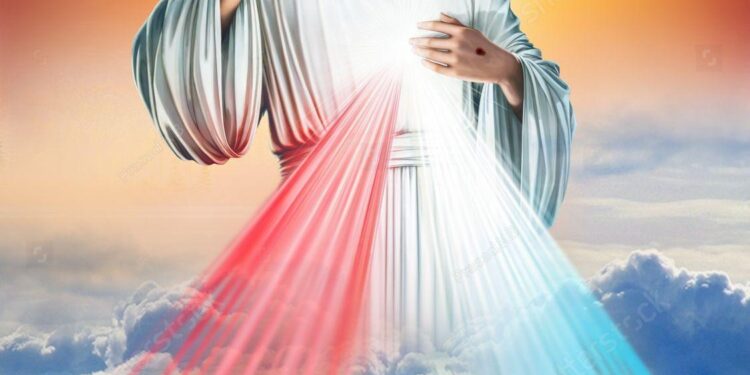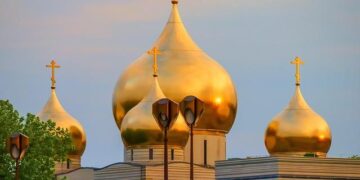In recent years, the rapid expansion of Pentecostalism in Nigeria has left an indelible mark not only on the country’s religious landscape but also on its burgeoning film industry, Nollywood. This intersection of faith and popular culture is reshaping the themes, narratives, and production of Nigerian cinema in profound ways. As Pentecostal churches continue to grow in influence, their values and stories are increasingly woven into Nollywood films, creating a distinct genre that reflects spiritual struggles, moral lessons, and divine interventions. This article explores how Pentecostalism has become a driving force behind Nollywood’s evolution, illuminating the complex relationship between religion and entertainment in Nigeria.
Pentecostal Influence on Nollywood Narratives and Themes
Pentecostalism’s surge within Nigeria has left an indelible mark on the country’s film industry, particularly Nollywood. This influence manifests vividly in the narratives and themes filmmakers choose to explore. Stories increasingly orbit around spiritual warfare, divine intervention, and redemption, reflecting Pentecostal Christianity’s core doctrines. Characters often embody archetypes such as the righteous believer, the devil-possessed antagonist, or the miracle-worker pastor, which speak directly to Pentecostal worldviews and resonate deeply with audiences familiar with those motifs. Such portrayals not only reinforce religious beliefs but also highlight the moral struggles between good and evil that Pentecostal churches emphasize in their teachings.
Beyond thematic content, Pentecostal influence extends into production and promotion strategies within Nollywood. Many films are produced under the patronage of churches or faith-based organizations, which serve both as financiers and distributors. Typical elements infused into these films include:
- Explicit prayer sequences showcasing deliverance services
- Use of gospel music to heighten emotive scenes
- Testimonies and faith-building dialogues driving character development
- Visual symbolism linked to spiritual authority, such as crosses and anointing oil
| Aspect | Pentecostal Features in Nollywood |
|---|---|
| Storylines | Deliverance, miracles, prophecy, spiritual battles |
| Character Types | Pastors, prophets, believers, witches, demons |
| Music | Gospel choirs, worship songs |
| Visuals | Church settings, altars, holy water |
The Role of Faith-Based Funding and Church Partnerships in Film Production
In recent years, Pentecostal churches have emerged as pivotal financiers in Nigeria’s burgeoning film industry, injecting not only capital but also ideological direction into Nollywood productions. This faith-based funding model has enabled filmmakers to undertake projects that might otherwise struggle to secure investment, particularly those with strong religious themes or moral narratives. These partnerships often come with strategic expectations, as church leaders collaborate closely with producers to ensure that content aligns with doctrinal values, while aiming to reach both congregants and a wider audience hungry for spiritual storytelling.
Key benefits of these collaborations include:
- Access to dedicated funding streams that prioritize faith-driven narratives over purely commercial objectives.
- Built-in distribution networks through churches and religious events, enhancing viewer reach and engagement.
- Community endorsement that boosts credibility and trust among audiences.
| Aspect | Impact |
|---|---|
| Funding | Enables risk-taking on gospel-themed stories |
| Content Control | Ensures alignment with Pentecostal beliefs |
| Audience | Targets churchgoers and spiritually-minded viewers |
Harnessing Religious Engagement to Foster Diverse and Inclusive Storytelling
Pentacostal churches in Nigeria have increasingly become an influential force in shaping the narratives and creative directions within Nollywood. Their impact extends beyond mere thematic content to the very fabric of storytelling, embedding religious values and moral frameworks that resonate deeply with a broad audience. These churches actively engage congregants through media, inspiring filmmakers to craft stories that navigate complex social issues – such as redemption, divine justice, and spiritual warfare – while reflecting the diverse realities of Nigerian life. This intersection of faith and film fosters a cinematic space where spirituality is not just a backdrop but a dynamic protagonist.
Embracing religious engagement has also opened doors for diverse voices and perspectives within Nollywood, widening the scope for inclusive storytelling. Filmmakers now incorporate narratives that highlight varying religious expressions and cultural identities, promoting dialogue and understanding across different communities. Key elements contributing to this shift include:
- Community involvement: Pentecostal networks provide platforms for emerging talent and grassroots feedback that deepen story relevance.
- Collaborative productions: Partnerships between churches and film studios help ensure authentic religious representation.
- Audience empowerment: Viewers become active participants in shaping content through church-mediated screenings and discussions.
| Aspect | Impact on Storytelling |
|---|---|
| Spiritual Themes | Nuanced depiction of faith journeys and miracles. |
| Character Development | Characters often reflect moral dilemmas tied to religious beliefs. |
| Plot Structure | Stories often incorporate themes of redemption, divine intervention, and spiritual warfare. |
| Audience Engagement | Church-facilitated discussions and screenings foster community dialogues around film content. |














